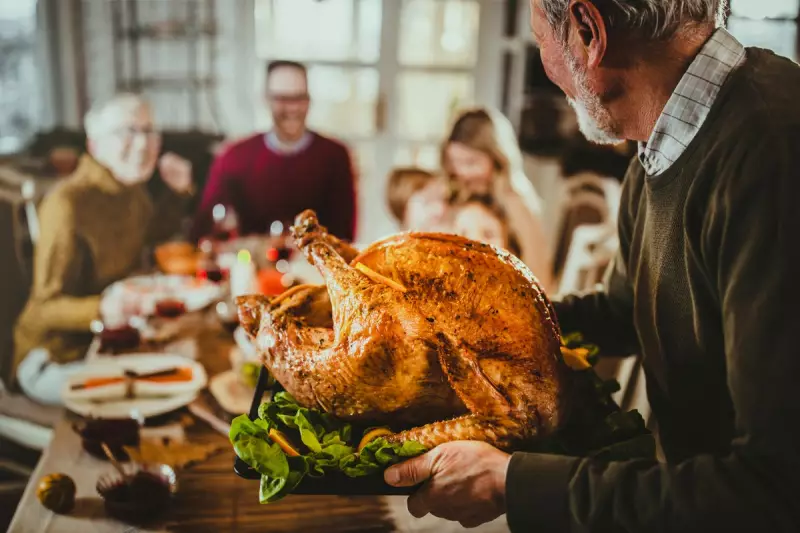
As Thanksgiving approaches, families across America are finalising their festive menus while debating one crucial question: when to serve the traditional feast. While some households opt for an early 3pm start, others prefer a more conventional 6pm or 7pm dinner service. This timing dilemma frequently connects to the notorious post-dinner energy slump that leaves many guests struggling to stay awake.
The Turkey Tryptophan Myth Debunked
Central to this discussion is the Thanksgiving centrepiece – turkey – and its reputation for causing sleepiness. Turkey contains tryptophan, an amino acid that plays a vital role in melatonin production, which regulates sleep schedules according to the Icahn School of Medicine at Mount Sinai. However, professional chefs argue that blaming turkey alone oversimplifies the science behind post-feast fatigue.
California-based chef Brendan Collins acknowledged that tryptophan does affect sleep patterns but clarified that turkey isn't the primary reason for Thanksgiving drowsiness. "I think the truth is that we can end up overeating on Thanksgiving, in comparison to our normal eating schedule, and we get food comas," he explained to The Independent. "We need to sleep because of that. Not because of the small amount of tryptophan found in the turkey itself."
Real Culprits Behind Thanksgiving Fatigue
John Carpenter, executive chef at Signature Restaurant at La Cantera Resort and Spa in Texas, agreed that overconsumption remains the main factor in post-dinner lethargy. He noted that the combination of heavy foods and alcohol creates the perfect storm for sleepiness. "Thanksgiving dinner is quite heavy, between stuffing and large amounts of meat we eat, whether that be turkey or ham," he explained. "It's also usually surrounded by friends and family, and there's some alcohol drinking usually involved, which isn't exactly known to keep us awake."
The Cleveland Clinic confirms that tryptophan appears in many protein-rich foods including chicken, eggs, cheese, and fish. While the amino acid can influence melatonin and serotonin levels – neurotransmitters controlling mood and sleep – the quantity in turkey alone doesn't explain the dramatic post-meal fatigue experienced during Thanksgiving celebrations.
Optimal Thanksgiving Dinner Timing
Considering the physical effects of large holiday meals, chefs recommend strategic planning for dinner timing. Carpenter personally adjusts his eating schedule days before Thanksgiving, eating lighter meals and sometimes skipping breakfast on the day itself in anticipation of the feast.
Collins emphasises allowing sufficient preparation time, recommending two and a half to three hours for cooking to coordinate vegetable preparation with turkey roasting. Both chefs advocate for daytime rather than evening meals to accommodate digestion and family routines.
"Normally for me, it's early in the afternoon or early in the day," Carpenter explained, noting that earlier service allows children time to wind down and creates more family time. Collins added that guest demographics should influence timing: "I think if there's a lot of children under 10 years of age, having your dinner at 2pm or 3pm would be good. If it's more towards the adult scene, then I think it's more of an early dinner, late lunch kind of thing. I'd personally go for 4pm or 5pm."
A 2022 study published in Cell Metabolism supports earlier dining, finding that late meals significantly affect energy regulation in overweight and obese patients. Collins concluded: "Personally, I know you shouldn't be eating a huge meal later at night, especially the size of a normal Thanksgiving meal. So definitely give yourself the time for your food to settle down."
Despite the planning considerations, Collins reminds hosts not to let stress overshadow the celebration. "Don't stress out too much about the food," he advised. "I know sometimes Thanksgiving is one of the first times you've seen friends or family in a long time. So I think the idea is that it's celebratory, and make sure you do that."






